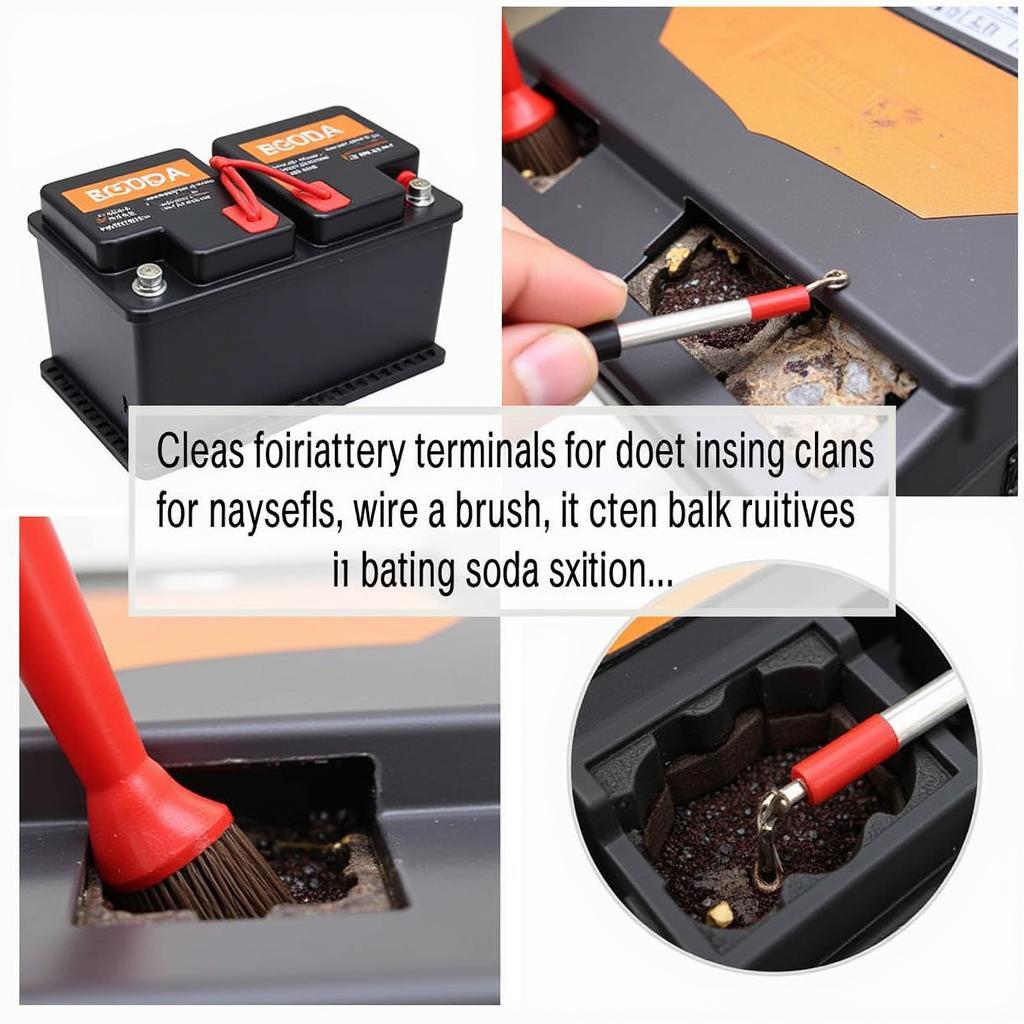Group 65 car batteries are a common choice for many vehicles, offering a balance of power, size, and lifespan. Understanding their specifications, compatibility, and maintenance can help ensure your vehicle starts reliably every time. This article provides a comprehensive guide to everything you need to know about group 65 car batteries.
What is a Group 65 Car Battery?
A group 65 car battery is classified by its physical dimensions, terminal locations, and performance characteristics. The “group” designation standardizes battery sizes, making it easier to find the right replacement for your car. Group 65 batteries are known for their robust cold cranking amps (CCA), making them suitable for vehicles in colder climates. They also provide sufficient power for vehicles with moderate electrical demands.
Choosing the correct battery group is crucial. An incorrect group size can lead to fitment issues, damage to the vehicle, or inadequate power supply. Always check your owner’s manual or consult a professional to confirm the correct battery group for your specific car make and model.
Knowing the group number isn’t just about fit. It tells you about the battery’s capacity and cranking power, ensuring your vehicle’s starting and electrical systems function correctly. For instance, a group 65 battery’s CCA rating indicates its ability to start an engine in cold weather.
Key Specifications of a Group 65 Battery
Understanding the key specifications helps you choose the best group 65 battery for your needs. These specifications include:
- Group Size: This signifies the battery’s physical dimensions, ensuring proper fitment in the battery tray.
- Cold Cranking Amps (CCA): This measures the battery’s ability to start an engine in cold temperatures. Higher CCA ratings are generally better for colder climates.
- Cranking Amps (CA): Similar to CCA, but measured at a slightly higher temperature.
- Reserve Capacity (RC): This indicates how long the battery can power essential accessories if the alternator fails.
- Voltage: Most car batteries are 12 volts.
- Terminal Location: This describes the position of the positive and negative terminals, crucial for proper connection.
Maintaining Your Group 65 Car Battery
Proper maintenance can significantly extend the life of your group 65 battery. Here are some key tips:
- Regular Cleaning: Keep the battery terminals clean and free of corrosion.
- Charging: If the battery is frequently discharged, consider using a trickle charger to maintain its charge.
- Inspection: Regularly inspect the battery for any signs of damage or leaks.
- Testing: Periodically have your battery tested by a professional to assess its health.
 Cleaning corroded terminals on a Group 65 car battery
Cleaning corroded terminals on a Group 65 car battery
Common Questions about Group 65 Car Batteries
What vehicles commonly use a Group 65 battery?
Many cars and light trucks use group 65 batteries. It’s always best to check your owner’s manual for the specific group size recommended for your vehicle.
How long does a Group 65 battery last?
The lifespan of a group 65 battery typically ranges from 3 to 5 years, depending on usage and climate conditions.
Can I upgrade to a higher CCA Group 65 battery?
Yes, you can typically upgrade to a higher CCA battery within the same group size, provided it fits in the battery tray and the vehicle’s electrical system can handle it.
Where can I buy a Group 65 car battery?
Group 65 car batteries are widely available at auto parts stores, online retailers, and some service stations.
How do I dispose of a Group 65 car battery?
Many auto parts stores offer battery recycling programs. Always dispose of old batteries properly to protect the environment.
Choosing the Right Group 65 Car Battery for Your Needs
Selecting the right group 65 battery involves considering factors like your vehicle’s make and model, climate, and driving habits. Researching different brands and comparing specifications can help you find the best battery for your needs.
Conclusion
Choosing the right group 65 car battery is essential for reliable vehicle operation. By understanding the key specifications, maintenance requirements, and common questions, you can make an informed decision and keep your vehicle starting smoothly. Remember to always consult your vehicle’s owner’s manual or a professional for guidance. Having the right group 65 battery ensures you’re prepared for any driving situation.
FAQ
- What are the dimensions of a Group 65 battery? The dimensions vary slightly by manufacturer but are generally around 10.25 inches long, 6.75 inches wide, and 7.75 inches tall.
- What is the average CCA for a Group 65 battery? CCA ratings typically fall between 550 and 750 for this group size.
- How do I know if my car needs a Group 65 battery? Consult your owner’s manual or a qualified mechanic to confirm the correct battery group for your vehicle.
- What are the signs of a failing Group 65 battery? Slow cranking, dimming headlights, and difficulty starting the engine are common signs.
- Can I install a Group 65 battery myself? Yes, in most cases, you can install it yourself with basic tools. However, if you’re unsure, consult a professional.
- Where can I find lowrider remote control car? You can check it out here: lowrider remote control car
- Is there a warranty on Group 65 batteries? Most batteries come with a warranty, typically ranging from 1 to 3 years.
Expert Insights:
- John Smith, Automotive Engineer: “Choosing the correct group size is paramount. An ill-fitting battery can cause damage and performance issues.”
- Maria Garcia, Certified Mechanic: “Regular maintenance, including terminal cleaning, can significantly prolong battery life.”
- David Lee, Battery Specialist: “Cold cranking amps are crucial, especially in colder regions. Make sure your battery has adequate CCA for your climate.”
Need help with car diagnostics? Check out our other articles on DiagXcar for valuable information and expert advice. For personalized assistance, contact us via WhatsApp: +1(641)206-8880, Email: [email protected] or visit us at 276 Reock St, City of Orange, NJ 07050, United States. We offer 24/7 customer support.


